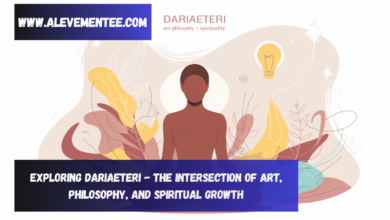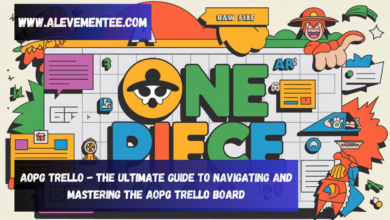Vertėjjas – What You Need To Know
I’ve always been interested in how languages work. As I started learning to be a translator, I faced many challenges. Learning all the rules of grammar and new words was tough. Understanding cultural differences was also important, but sometimes tricky. all thanks to my friend, who introduced me to the idea of becoming a translator, or as they call it, a vertėjjas.
Vertėjjas is the Lithuanian term for “translator.” It refers to someone who converts written text from one language to another while maintaining the original meaning, tone, and intent.
In this article, we’ll delve into the role of a translator, known as “vertėjjas” in Lithuanian. We’ll explore what a translator does, their responsibilities, the challenges they face, and the significance of their work in bridging language barriers.
What is a vertėjjas?
A translator, often referred to as a “vertėjjas” in Lithuanian, is an individual tasked with converting written text from one language to another while preserving the original meaning, tone, and intent. They possess fluency in both the source and target languages and have a deep understanding of cultural nuances.
Duties of a vertėjjas – Essential Responsibilities Explained:
Vertėjjas have important jobs helping people understand each other when they speak different languages. They need to know both languages really well, including all the little differences and slang words.
They also have to understand the cultures behind the languages, so they can choose the right words and phrases. Some vertėjjas specialize in certain subjects, like law or medicine, so they have to be experts in those areas too. It’s crucial for them to get the translation just right, making sure it’s clear and accurate.
They often have tight deadlines to meet, so they need to manage their time well. vertėjjas also have to keep everything they work on private and follow professional rules. They’re always learning new things to stay good at their job and keep up with changes.
Common Challenges Encountered By vertėjjas – Navigating The Obstacles:
Translating can be tough for vertėjjas because they have to deal with lots of different things. One big problem is idioms, which are sayings that don’t mean what the words say. Another problem is that words can mean different things depending on the situation.
vertėjjas also need to understand different cultures so they can get the meaning right. If they’re translating something technical, like about science or medicine, they need to know a lot about that too. Plus, they often have to work fast to get things done on time.
Making sure translations are accurate and don’t have mistakes is important too. So, being a vertėjjas takes knowing languages well, being aware of different cultures, and being good at managing time.
Various vertėjjas Specialties – A Comprehensive Guide:
1. Story Translation: Imagine translating stories from one language to another, like turning a magic spell into words everyone can understand! Story vertėjjas make sure the excitement, emotions, and magic of a story stay alive even in a different language.
2. Law Translation: Legal translation deals with translating important legal stuff, like contracts and court papers, into different languages. It’s like making sure everyone speaks the same legal language, so there are no misunderstandings.
3. Tech Translation: Tech translation is all about translating tricky technical stuff, like computer manuals and medical documents, into simpler words. Tech vertėjjas need to be super smart in both languages and know a lot about tech stuff to get it right.
4. Health Translation: Health translation is about translating medical things, like doctor’s notes and medicine instructions, into plain language. Health vertėjjas need to understand medical words and know how to explain them in a way that anyone can understand.
5. Making Things Local: Localization is about making things fit in with different cultures and languages. It’s like customizing a video game or website so it feels like it was made just for you, no matter where you’re from!
6. Talking Movies and Shows: Ever watched a movie with subtitles or heard different voices in a dubbed version? That’s audiovisual translation! It’s about making sure everyone can enjoy movies and shows, even if they speak a different language.
7. Speaking on the Spot: Interpreting is like live translation! Interpreters help people understand each other in real-time, whether it’s at meetings, in courtrooms, or even at the doctor’s office. They’re like language superheroes who save the day with their quick thinking and speaking skills!
Requirements for Becoming a vertėjjas – What Qualifications Do You Need?
To become a vertėjjas, you need to be really good at speaking and understanding more than one language. While you don’t always need a degree, having one in subjects like languages or translation can be helpful. You might also need extra training if you want to specialize in certain areas like law, medicine, or technology. Some people also get certified by translation groups to show they’re really good at their job.
Getting experience is also important. This could be through doing volunteer work, freelancing, or working for a translation company. The more you practice, the better you’ll get!
The Future Of Translation – Will Machines Replace Human Translators?
Machine translation, like Google Translate, has gotten better recently. Some people think it might replace humans who translate languages. But it still has problems. For example, it sometimes doesn’t understand the meaning well, especially in hard texts.
It also struggles with specialized topics and doesn’t understand cultural things. Human translators, on the other hand, know a lot about different cultures and languages. They’re better at translating tricky stuff and making sure things sound right. While machine translation is useful, it’s not as good as humans yet.
We still need people to check and fix translations, especially for hard or cultural stuff. So, even though machine translation is improving, it won’t replace human translators anytime soon.
Ethical Considerations In Translation – Keeping it Honest and Respectful:
- Getting it Right: Translators need to make sure they translate the original message accurately without changing its meaning. They also need to make sure the translation is correct and makes sense.
- Being Fair: Translators should not put their own opinions into the translation. They need to stay neutral and represent the original author’s ideas honestly.
- Respecting Different Cultures: Translators should be aware of cultural differences and make sure the translation fits the culture of the people who will read it. This means understanding things like local sayings and customs.
- Keeping Secrets: Translators often work with private or sensitive information, so they have to keep it confidential and not share it with anyone else.
- Respecting Copyright: Translators need to follow the rules about using other people’s work. This means getting permission to translate something that is protected by copyright and giving credit to the original author.
- Being Professional: Translators need to act professionally by meeting deadlines, communicating well with clients, and doing their best work. They also need to keep learning and improving their skills.
More Frequently Asked Questions about Vertėjjas (Translators):
1. How do vertėjjas ensure accuracy in their translations?
vertėjjas employ various techniques to ensure accuracy, including consulting reference materials, conducting research on specialized terminology, and seeking clarification from the original author or client when necessary. Additionally, many vertėjjas utilize computer-assisted translation tools to aid in the translation process.
2. How do vertėjjas stay updated on language and industry trends?
vertėjjas stay updated on language and industry trends through continuous learning and professional development. They may attend conferences, workshops, and seminars related to translation and linguistics. Many translators also participate in online forums and discussion groups to exchange ideas and stay informed about emerging trends in their field.
3. What are the common misconceptions about translators?
One common misconception is that translators simply replace words in one language with their equivalents in another language. In reality, translation is a complex process that requires linguistic skills, cultural understanding, and subject matter expertise. Another misconception is that anyone who is bilingual can be a translator, when in fact, professional translators undergo extensive training and practice to develop their skills.
Conclusion:
Translators are like important bridges between different languages and cultures. They help people understand each other better by making sure the meaning of words stays the same when going from one language to another.
This helps countries work together, share their cultures, and understand each other. Whether they’re translating legal papers, stories, or instructions, translators are super important for bringing the world closer together.




